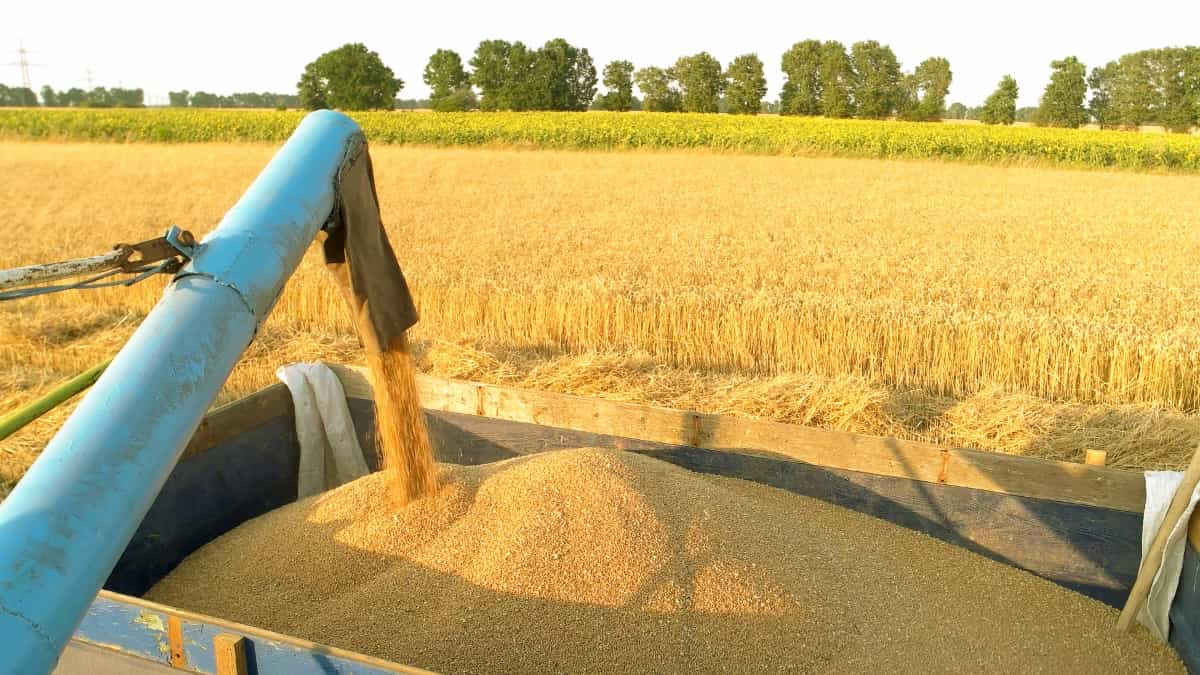E-commerce has revolutionized the way agricultural products are bought and sold, creating a significant impact on supply chains. With e-commerce platforms connecting farmers directly to consumers, traditional intermediaries are being bypassed, resulting in shorter and more efficient supply chains. One major advantage of e-commerce in agriculture is the elimination of geographical barriers.

By eliminating multiple middlemen involved in traditional supply chains, farmers can ensure that their products reach the market faster, reducing spoilage and wastage. Additionally, e-commerce enables better price transparency in agricultural markets. Previously, farmers had limited information about prevailing market prices and often fell victim to unfair pricing practices by middlemen. However, with online platforms providing real-time price information, farmers can make informed decisions about setting competitive prices for their products.
Furthermore, e-commerce facilitates direct communication between buyers and sellers. Farmers can engage with consumers through social media channels or online forums to understand consumer preferences better and tailor their offerings accordingly. This direct interaction also fosters trust between producers and consumers as they can establish personal connections based on shared values such as sustainable farming practices or organic production methods.
E-commerce in Agriculture
E-commerce Platforms: Facilitating Direct-To-Consumer Agricultural Sales
The rise of e-commerce has revolutionized numerous industries, and agriculture is no exception. With the advent of online platforms tailored specifically for agricultural products, farmers now have direct access to a vast consumer base. By cutting out middlemen, farmers can retain higher profits while offering competitive prices to customers. One key advantage of these platforms is the ability to showcase the unique qualities and origin of agricultural products.
Farmers can provide detailed descriptions and images that highlight their sustainable farming practices or organic certifications, appealing to increasingly conscious consumers who prioritize quality and transparency in their food choices. Moreover, e-commerce platforms facilitate convenient transactions by offering secure payment gateways and streamlined order fulfillment processes. Farmers can receive orders online, package their products accordingly, and arrange for delivery or pick-up options depending on customer preferences.
Challenges and Opportunities for E-commerce in Agricultural Markets
The agricultural sector has seen significant growth in e-commerce adoption, bringing both challenges and opportunities to farmers, suppliers, and consumers. One of the challenges faced by e-commerce platforms is establishing trust among consumers when it comes to buying fresh produce online. Another challenge is ensuring efficient logistics and delivery systems that can handle perishable goods. Timely delivery is crucial for maintaining product quality, as delays can lead to spoilage or reduced shelf life. Additionally, rural areas may face infrastructure limitations that hinder reliable shipping services.
E-commerce Innovations in Agribusiness: From Farm to Table
One key innovation in agribusiness e-commerce is the use of online marketplaces. These platforms connect farmers directly with consumers, eliminating traditional middlemen and allowing for more transparency in pricing and product information. Farmers can showcase their produce or other agricultural products on these platforms, enabling them to reach a wider customer base beyond their local area.
In case you missed it: 10 Benefits of Drone Sprayers in Agriculture

Another development is the advent of mobile apps for agricultural sales. These apps allow farmers to list their products and communicate with potential buyers easily. Consumers can browse through different offerings, compare prices, and make purchases, all from the convenience of their smartphones.
Global Trends in E-commerce Adoption within the Agricultural Sector
The agricultural sector has been quick to embrace e-commerce, with global trends indicating a significant increase in its adoption. Farmers and agribusinesses are recognizing the potential of online platforms to reach a broader customer base and streamline their operations. One notable trend is the rise of online marketplaces specifically catering to agricultural products. These platforms connect farmers directly with consumers, bypassing traditional supply chains.
This not only allows for higher profit margins but also provides consumers with access to fresher produce and other farm products. Another trend is the increasing use of mobile applications in agricultural e-commerce. With smartphones becoming ubiquitous worldwide, farmers can now manage their businesses on the go, accessing real-time market information, managing inventory, and even connecting with buyers through these apps.
Additionally, there has been an upsurge in cross-border e-commerce within the agricultural sector. As trade barriers are reduced, and logistics become more efficient, farmers from one region can now easily sell their products to customers located thousands of miles away. This opens up new opportunities for international collaborations and partnerships.
E-commerce Logistics and Distribution in Agriculture
With the rise of online platforms, farmers and producers now have a direct channel to reach consumers, cutting out middlemen and streamlining logistics and distribution processes. E-commerce platforms enable farmers to connect with shipping companies or utilize their delivery networks to transport goods quickly and reliably. This allows for faster order fulfillment, reducing lead times and ensuring fresher produce reaches customers.
Furthermore, e-commerce platforms provide valuable tracking systems that allow both producers and consumers to monitor shipments in real time. This transparency enhances trust between buyers and sellers while also providing insights into delivery performance. Distribution is another aspect of e-commerce logistics that benefits the agriculture industry.
In case you missed it: Subsidies for Women in Agriculture and Financial Assistance by the Government of India

Traditional supply chains often involve multiple intermediaries handling produce before it reaches its destination. However, with e-commerce platforms, farmers can bypass these intermediaries by selling directly to consumers or retailers through digital channels. By understanding consumer preferences and demand patterns through data analytics tools offered by e-commerce platforms, farmers can tailor their offerings accordingly.
The Role of Data Analytics in Optimizing Agricultural E-commerce
By harnessing the power of data, farmers and agribusinesses can gain valuable insights into consumer preferences, market trends, and supply chain efficiencies. This enables them to make informed decisions that drive sales growth and improve customer satisfaction. One way data analytics helps optimize agricultural e-commerce is by analyzing customer buying patterns.
By tracking what products customers are purchasing and when they are making these purchases, farmers can adjust their inventory accordingly to meet demand effectively. Additionally, this data can help identify potential upselling or cross-selling opportunities. Data analysis also aids in personalized marketing strategies.
By understanding customer preferences through demographic information or previous purchase history, agribusinesses can tailor their marketing campaigns to target specific audiences more effectively. From sending personalized emails with relevant product recommendations to offering loyalty programs based on past purchases – all these tactics contribute towards enhancing customer engagement and building long-term relationships.
E-commerce Regulations and Policies Affecting Agricultural Trade
When it comes to e-commerce in the agricultural sector, certain regulations and policies have a significant impact on trade. These regulations aim to ensure fair competition, protect consumer interests, and promote the smooth operation of online marketplaces. One key regulation is related to food safety.
Governments enforce strict guidelines to ensure that agricultural products sold online meet quality standards and do not pose any health risks. This includes proper labeling, handling, and storage of perishable goods. Another important aspect is taxation. E-commerce platforms need to comply with tax laws pertaining to agricultural trade.
In case you missed it: How to Install Solar Fencing for Agricultural Land: Protect Your Crops with Low-Cost Solution

This ensures that farmers and sellers pay their fair share of taxes while also preventing tax evasion or unfair advantages for certain players in the market. Additionally, data protection plays a crucial role in e-commerce regulations. With increasing concerns about privacy breaches and cybercrimes, governments have set rules regarding data collection, storage, and usage by online businesses operating in the agricultural sector.
Conclusion
The integration of e-commerce into agricultural supply chains has had a profound impact on the industry. With advancements in digital technology, farmers and distributors are now able to streamline their processes, increase efficiency, and reach a wider customer base.
E-commerce platforms provide farmers with valuable insights into consumer preferences and demand patterns. By analyzing data generated through online sales, they can make informed decisions about crop selection and production planning. This not only reduces wastage but also ensures that farmers are meeting the needs of their target audience effectively.
- Feed Your Flock for Less: Top 10 Tips to Save on Chicken Feed
- Ultimate Guide to Ossabaw Island Hog: Breeding, Raising, Diet, and Care
- Hatching Answers: The Top 10 Reasons Your Chickens Aren’t Laying Eggs
- Eggs and Economics: Breaking Down the Cost of Raising Backyard Chickens
- Defend Your Greens: Proven Methods to Keep Iguanas Out of Your Garden
- Ultimate Guide to Cinnamon Queen Chicken: A Comprehensive Guide for Beginners
- Ultimate Guide to California Tan Chicken: Breeding, Raising, Diet, Egg-Production and Care
- Ultimate Guide to Marsh Daisy Chicken: Breeding, Raising, Diet, and Care
- 10 Types of Chicken Farming Businesses You Can Start for Profits